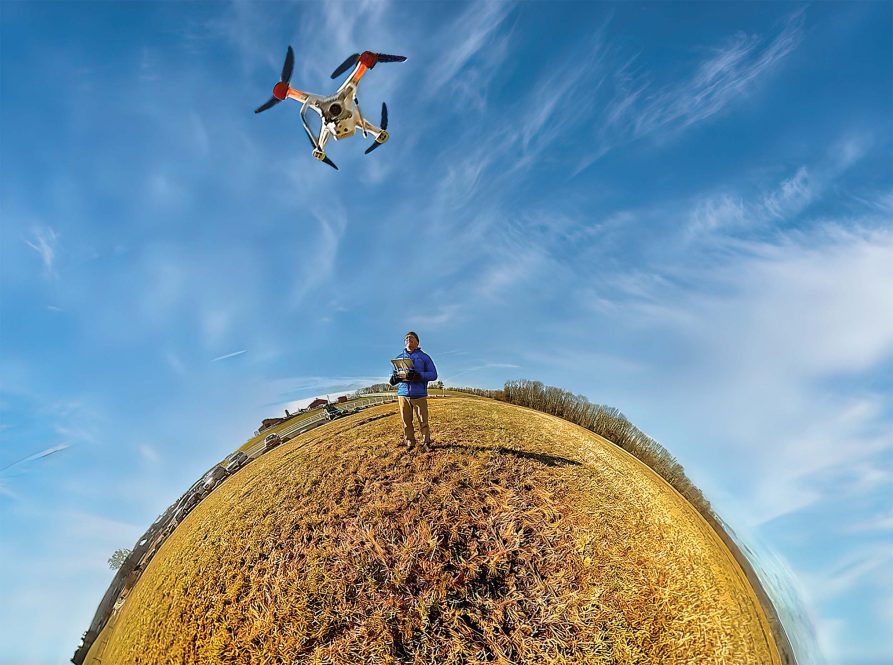Milton Levin ’04 Ph.D says he’s often surprised at how Husky Nation responds to the photos he takes. A recent drone shot of Mirror Lake garnered more than 8,000 likes within hours of being shared on Instagram and became one of UConn’s top posts of the year. “I wish I knew the magic formula so I could be more selective, but I just try to take unique shots,” he says. Levin walks his photogenic chocolate lab, Acadia, around campus at different times of day and snaps photos when the circumstances seem right. “I always have a camera with me. I’m always thinking about how to document what I see.”
Levin first came to Storrs in 1999 as a graduate student. Working as a necropsy technician and making bagels at his twin brother’s shop in Virginia are just two of the detours his academic career took before he realized that research was his passion. That brought him to UConn to work with Sylvain De Guise, professor of pathobiology and veterinary sciences and director of Connecticut Sea Grant, studying the impact of environmental contaminants, particularly polychlorinated biphenyls (PCBs), on the immune systems of marine species, such as seals, dolphins, and polar bears. The research took him far off the beaten path, to places few humans get to see.



